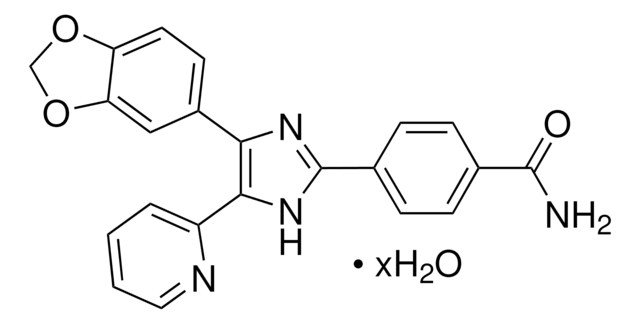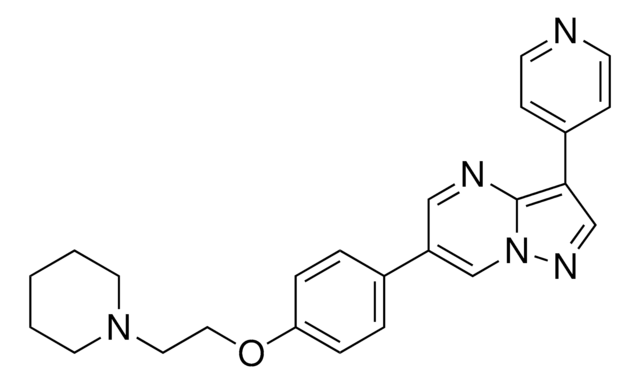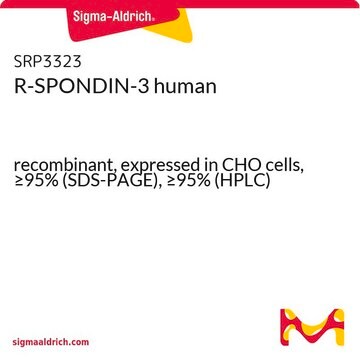SML0788
A 83-01
≥98% (HPLC), powder, TGF-β RI kinase inhibitor
Synonym(s):
3-(6-Methyl-2-pyridinyl)-N-phenyl-4-(4-quinolinyl)-1H-pyrazole-1-carbothioamide, A-83-01, A83-01
About This Item
Recommended Products
product name
A 83-01, ≥98% (HPLC)
Quality Level
Assay
≥98% (HPLC)
form
powder
color
white to beige
solubility
DMSO: 5 mg/mL, clear (warmed)
storage temp.
−20°C
InChI
1S/C25H19N5S/c1-17-8-7-13-23(27-17)24-21(19-14-15-26-22-12-6-5-11-20(19)22)16-30(29-24)25(31)28-18-9-3-2-4-10-18/h2-16H,1H3,(H,28,31)
InChI key
HIJMSZGHKQPPJS-UHFFFAOYSA-N
General description
Application
- in the culture medium for organoid formation from dissociated tumor cells,
- as a component in Dulbecco′s modified Eagle medium/nutrient mixture F-12 (DMEM/F12) for culturing human epidermal stem cells (EpSCs)
Biochem/physiol Actions
Storage Class Code
11 - Combustible Solids
WGK
WGK 3
Regulatory Listings
Regulatory Listings are mainly provided for chemical products. Only limited information can be provided here for non-chemical products. No entry means none of the components are listed. It is the user’s obligation to ensure the safe and legal use of the product.
JAN Code
SML0788-VAR:
SML0788-25MG:
SML0788-BULK:
SML0788-5MG:
Certificates of Analysis (COA)
Search for Certificates of Analysis (COA) by entering the products Lot/Batch Number. Lot and Batch Numbers can be found on a product’s label following the words ‘Lot’ or ‘Batch’.
Already Own This Product?
Find documentation for the products that you have recently purchased in the Document Library.
Customers Also Viewed
Articles
Human pancreatic cancer organoid biobank (PDAC organoids) with various KRAS mutations to aide in 3D cell culture and cancer research applications.
Organoid culture products to generate tissue and stem cell derived 3D brain, intestinal, gut, lung and cancer tumor organoid models.
Our team of scientists has experience in all areas of research including Life Science, Material Science, Chemical Synthesis, Chromatography, Analytical and many others.
Contact Technical Service






![[Leu15]-Gastrin I human ≥95% (HPLC)](/deepweb/assets/sigmaaldrich/product/structures/153/342/d4cb3dd7-13f1-46cf-8d1f-3907a5de7a83/640/d4cb3dd7-13f1-46cf-8d1f-3907a5de7a83.png)




